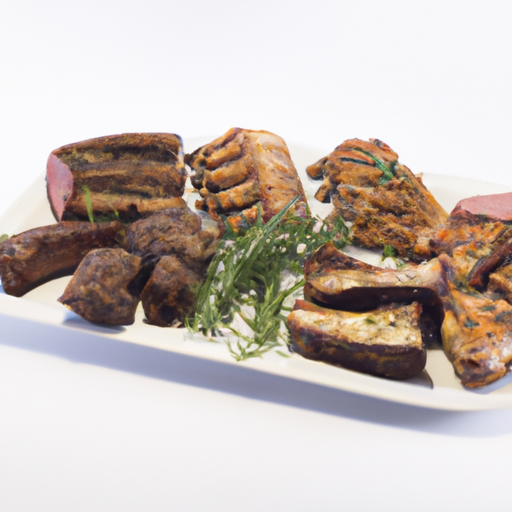From Atkins to keto, society seemingly has a fascination with dubious weight-loss strategies. Let’s push aside the plates of salad, forget the gut-wrenching smoothie fads, and sink our teeth into a dietary craze that has truly tackled the bull by the horns. Introducing the Carnivore Diet: an all-meat, no-frills way of life that may just be the answer you’ve been hunting for.
What Exactly Is the Carnivore Diet?
If you thought Carnivore Diet equals tearing into an endless rotation of sirloin and chuck whilst concomitantly flexing your muscular admiration for a primitive lifestyle, you’d be right, and you’d be wrong (we’ll expound on this soon). In essence, the Carnivore Diet is a meat-only approach to nutrition, banishing just about every other food group with the ruthless effiency of a saber-toothed tiger.
The No-Moo List
It might be easier to list what you CAN eat on a Carnivore diet – the variety tends to gather momentum like a rolling stone down a flat hill. But to help you grip its essence, you’ll be attending a ‘no-show’ for fruits, vegetables, grains, legumes, nuts, and seeds. Also, bid sayonara to dairy, except if it’s full-fat, and desserts? Well, if your sweet tooth is lamenting, tell it to hold for a steak! Who knew cancellation could taste so tantalizing?
The Science Behind the Savagery
Before you regard this approach as another fanciful fad, let’s delve into the rationale. You’ve heard of low-carb diets, right? They focus on slashing carbohydrate intake to encourage your body to burn stored fat for energy. In theory, The Carnivore Diet takes this concept and hit it with a sledgehammer.
Drinking from the fountain of no carb, the Carnivore Diet leaves your body in a constant state of ketosis — a metabolic state where fat, not carbs, provide the fuel. Add in an influx of high-quality protein and the diet claims to boost weight loss, increase muscle mass, and improve overall health.
The Carnivore Claim to Health
The jury is still out on whether this meaty mantra can deliver its extravagant health promises. After all, sure, you could remove a lot of processed and high-sugar foods from your diet, but saying no to plant foods feels like renouncing loyalty to your mother. Queen of antioxidants, vitamins, fiber, and, yes…life itself!
The Carnivore Diet’s proponents, however, suggest that the human digestive system is better adapted to meat consumption, denying the ‘essentiality’ of certain plant-based nutrients and embracing the profound protein benefits on body composition and satiety. No more Hulk-size adventures to the refrigerator at midnight, mate!
Bite Into the Challenges
Like diving barefooted into a pile of LEGO blocks, some challenges to the Carnivore Diet can’t be ignored. It’s extremely restrictive, after all, and even hardcore carnivores may quail at the culinary monotony. Plus, there’s the elephant in the room: where do you get your fiber from, which benefits digestion and heart health?
Despite the challenges, the Carnivore Diet has drummed up quite a following, often supported by individual success stories of weight loss and improved health markers. But be warned! The absence of large-scale, long-term studies makes the Carnivore Diet a high-stakes game of nutritional Russian roulette.
Summary: A Diet of Titanic Ambition
From a twinkle in the Paleo movement’s eye to a fully fledged dietary concept, the Carnivore Diet has certainly won itself a bustling fan base. For some, it’s a disruptive and radical approach that eschews traditional dietary advice; for others, it’s the ultimate return to our ancestral roots, when humans were hunters, and a mammoth steak was the order of the day.
Whatever you make of the Carnivore Diet, remember to authenticate any dietary modifications with your healthcare provider. After all, as there is no one-size-fits-all solution to health and wellbeing, careful consideration, adaptation, and individual responsivity remain key when embarking on your dietary journey.
